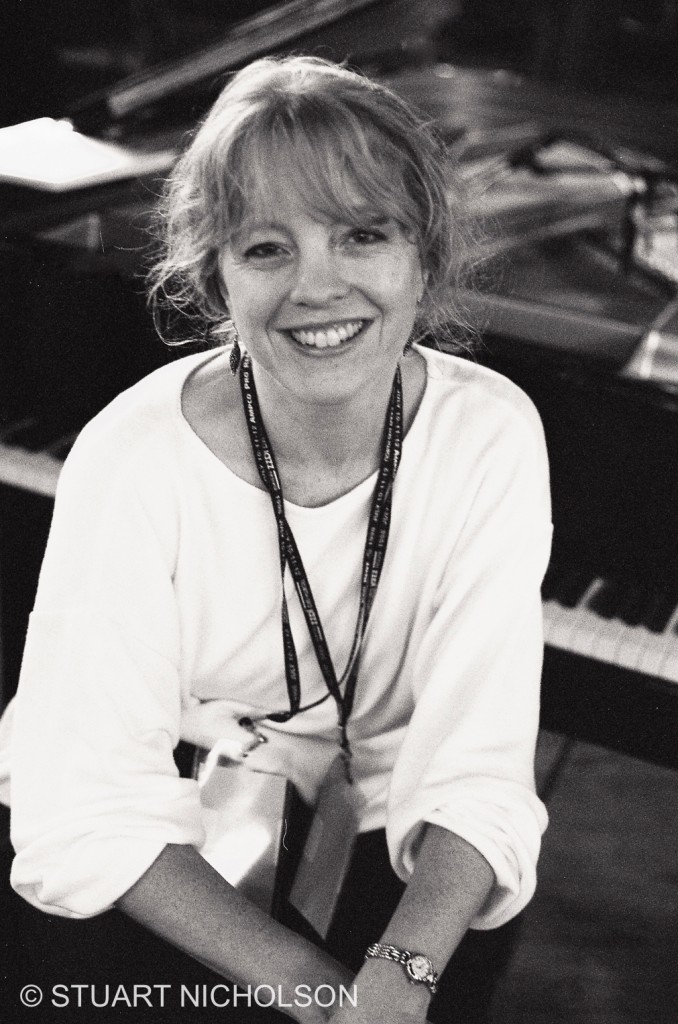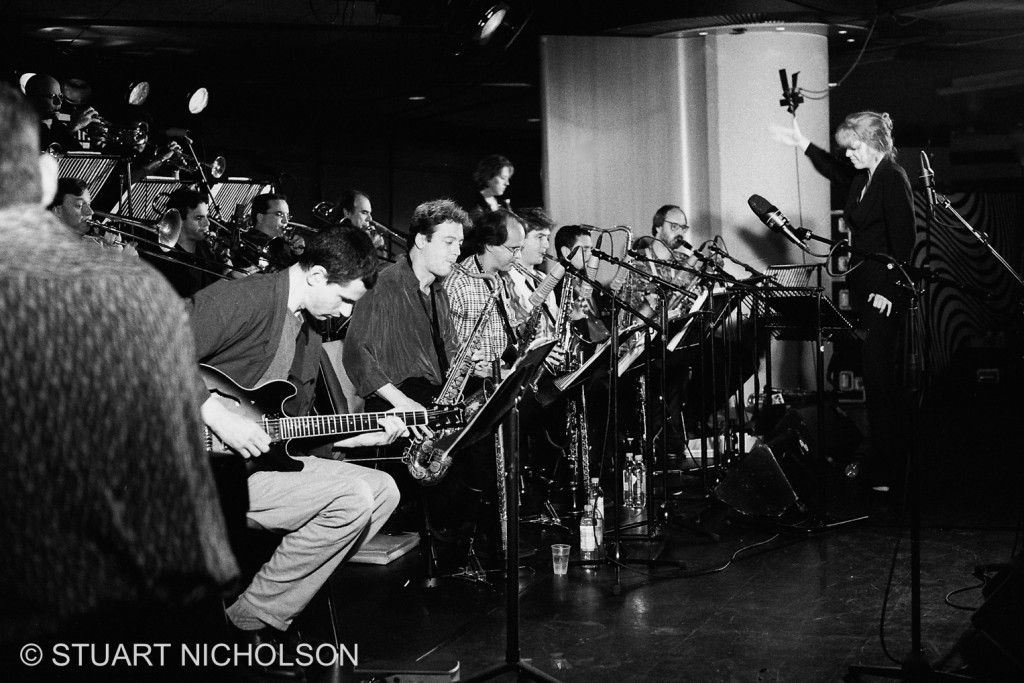Maria Schneider Interview: 24th January 2001
In the 81st Downbeat Readers Poll published in the December 2016 edition of the magazine, Maria Schneider’s The Thompson Fields was voted Album of the Year. She also topped both the Composer and Arranger categories and earlier in the year had topped the Downbeat Critics Poll in the Big Band, Composer and Arranger categories. As if that was not enough, The Thompson Fields also won a Grammy Award — her fifth in a remarkable career that took off in 1994 with the release of her debut album Evanescence. Today, she is one of the major figures in contemporary jazz, and, like Duke Ellington before her, gives force to the notion that the composer and arranger can be as much a creative force in jazz as the improviser.

I remember being deeply impressed with Evanescence, and when I was in New York in 1996, the Village Voice listings showed she was playing Visiones in the West Village, which described itself as a Supper Club. The food was good, but the music even better. On subsequent visits to the Big Apple during the following two years, when I was doing research for my Duke Ellington biography, I saw the band twice, maybe three times more. In July 1998 she gave a Masterclass at the North Sea Jazz Festival, and afterwards I was able to ask her several questions about a couple of the compositions on Evanescence for a study I was doing of the album for The Essential Jazz Records Vol. 2. which was published in 2000. Her detailed and patient explanations were as insightful as they were absorbing.

In October 2000 her third album Allégresse was released and I interviewed her in January 2001 for a piece in The Observer, for whom I was then regularly writing. The album was evidence of considerable artistic and aesthetic growth since Evanescence and 1996’s Coming About. For a start, its lighter textures and sophisticated melodic development seemed indicative of a new direction in her writing which I wanted to ask her about. But to begin, I’d heard in that 1999 Visiones was was forced to close but in the pre-internet age I’d lost track, other than her albums releases on the Enja label, of her career, so this seemed like a good place to begin our interview.
click-here-to-go-to-maria-schneider-interview